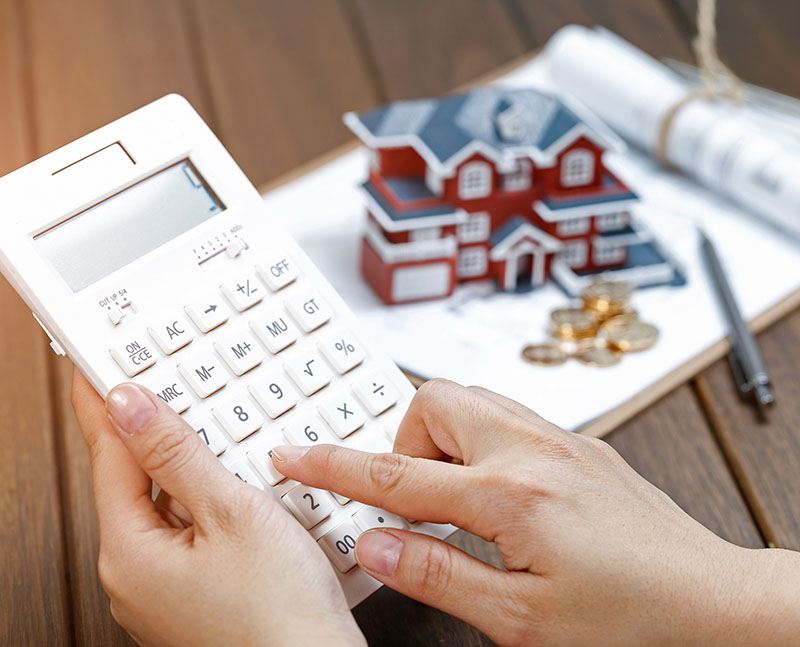You probably have a lot on your mind if you are trying to decide whether or not you are ready to buy a home. You probably are thinking about your finances, mortgage rates, home prices, the limited supply of homes for sale, and more. How will your finances, mortgage rates, and home prices impact the choice you will make?
While housing market conditions are definitely a factor in your decision, your own life and finances may be even more important.
NerdWallet stated, “Housing market trends give important context. But whether this is a good time to buy a house also depends on your financial situation, life goals, and readiness to become a homeowner.”
It may help to focus on what you can control. Ask yourself these questions that can give you clarity on whether you’re ready to make your move.
Do You Have a Stable Job?
One thing to consider is your job. Do you feel stability with your current employer? Buying a home is one of the biggest decisions you will make. It is a 15 or 30-year commitment. Knowing you have a reliable job and income coming in can help put your mind at ease.
If you do not feel stable with your current job, wait until your employment is stable before thinking about buying a house.
Do You Know What You Can Afford?
Talk to a mortgage lender to make sure you know what you’ll need to save and what you can expect to spend on your monthly payment. They’ll be able to tell you about the pre-approval process and what you can borrow, current mortgage rates, and approximate monthly payments. They can also inform you about closing costs to anticipate, what percent of the purchase price of the home you’ll need for a down payment, and more.
Check Your Credit
Your credit score will determine whether you qualify for a mortgage and affect the interest rate lenders will offer. Having a higher score will generally get you a lower interest rate, so take these steps to polish your credit score to buy a house:
• Get free copies of your credit reports from each of the three credit bureaus — Experian, Equifax and TransUnion — and dispute any errors that could hurt your score.
• Pay all your bills on time and keep credit card balances as low as possible.
• Keep current credit cards open. Closing a card will increase the portion of available credit you use, which can lower your score.
• Avoid opening new credit accounts while you’re applying for mortgages. Opening new accounts could put a hard inquiry on your credit report and lower the overall average age of your credit accounts, which could hurt your score.
• Track your credit score.
Start Saving Early
When calculating how much money you need to buy a home, consider one-time expenses as well as new, recurring bills. Here are the main upfront costs to consider when saving for a home:
Explore mortgage options
A variety of mortgages are available with varying down payment and eligibility requirements. Here are the main categories:
Conventional mortgages are the most common type of home loan and are not guaranteed by the government. Some conventional loans targeted at first-time buyers require as little as 3% down.
FHA loans are insured by the Federal Housing Administration and allow down payments as low as 3.5%.
USDA loans are guaranteed by the U.S. Department of Agriculture. They are for suburban and rural home buyers and usually require no down payment.
VA loans are guaranteed by the Department of Veterans Affairs. They are for current military service members and veterans and usually require no down payment.
You also have options when it comes to the mortgage term. Most home buyers opt for a 30-year fixed-rate mortgage, which is paid off in 30 years and has an interest rate that stays the same. A 15-year loan typically has a lower interest rate than a 30-year mortgage, but the monthly payments are larger.
Down payment
Your down payment requirement will depend on the type of mortgage you choose and the lender. Some conventional loans aimed at first-time home buyers with excellent credit require as little as 3% down. But even a small down payment can be challenging to save. For example, a 3% down payment on a $300,000 home is $9,000. Use a down payment calculator to decide on a goal, and then set up automatic transfers from
Closing costs
These are the fees and expenses you pay to finalize your mortgage, and they typically range from 2% to 6% of the loan amount. Your closing costs on a $300,000 loan could be between $6,000 and $18,000. That’s additional money you’d have to pay, on top of your down payment. In a buyer’s market, you can often ask the seller to pay a portion of your closing costs, and you can save on some expenses, such as home inspections, by shopping around.
Move-in expenses
Remember to budget for moving costs, which typically run up to $2,500 for most local moves. (Long-distance moves can be much pricier.) You’ll need some cash after the home purchase. Be sure to set some money aside for immediate home repairs, upgrades, and furnishings.
How Long Do You Plan to Live in Your New Home?
Another important thing to think about is how long you plan to live in your new home? It takes time to build equity in your home by paying down your loan and home price appreciation. If you plan to move too soon, you may not recoup your investment. For example, if you’re looking to sell and move again in a year, it might not make sense to buy right now.
A recent article from CNET says, “Buying a home is a good idea if you’re planning to stay put for at least three years. Home values typically increase between 2% and 5% annually, so you could end up paying more in closing costs than you’d earn in proceeds if you sell after only a year or two.”
Think about your future. If you plan to transfer to a new city or you anticipate your loved ones will need you to move closer to take care of them, that’s something to factor in.
Do you have a real estate broker and a mortgage lender to work with?
If not, finding a trusted local agent and a lender is a good first step. If you’re trying to decide if you’re ready to buy a home, these questions can help. But ultimately, your best and more reliable resource is the help of trusted real estate professionals.
Contact a trusted real estate broker at Wenzel Select Properties today! Wenzel Select Properties Real Estate Brokers will assist you in selecting properties that meet your needs. Our team of professionals will help find the exact fit for your individual or family lifestyle, whether it is selling, purchasing, or renting a new home.
Wenzel Select Properties’ location is 4941 Main Street in Downers Grove, Illinois. Our real estate office is in the heart of downtown Downers Grove. We are just minutes away from Interstates 88, 355, 55, 290, and 294. Wenzel Select Properties real estate brokers are available to meet with you 7 days a week – Monday through Sunday. You can call us for an appointment at (630) 430-4790.


